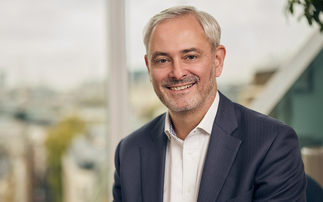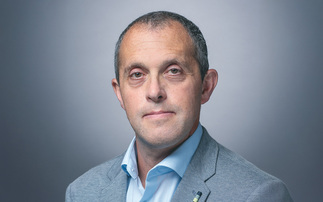With Japan's recent turnaround in fortunes bargains are in relatively short supply, but not if you know where to look says Michael Lindsell, investment adviser to Close Finsbury's Japanese Equity fund
Japan has recently enjoyed a remarkable turnaround in fortunes. Not only has many of its companies successfully restructured, but the stock market has responded by climbing more than 100% on the lows it sunk to three years ago.
But even though this recovery means bargains are in relatively short supply, there are still plenty of attractive propositions around if you know where to look, according to Michael Lindsell, the investment adviser to Close Finsbury's Japanese Equity fund.
"We can still find very good investments in Japan, which obviously make their way into the portfolio, even though the market isn't as compelling as it was two or three years ago," he says. "Share prices have gone up a lot and some are now too high."
Of particular interest to Lindsell, who has been following Japan closely for over 20 years, are stocks such as video game software companies Nintendo and Namco Bandai, which have business models that are very difficult to replicate.
"In Japan there are some companies you can't readily find in other countries," he agrees. "The video game companies create their own unique concepts and characters, which is a value-creating characteristic. The country has also been known for its manufacturing prowess and still boasts exceptional companies such as Canon."
The key to success, therefore, is finding such stocks that are capable of helping the fund achieve its stated objective, which is to maximise total returns, over the longer term, through a diversified portfolio of mainly equities quoted in Japan.
Increasing client capital - in real terms - as well as exceeding the returns generated by the benchmark Japan (TSE) First Section (Topix) index, is also among the top priorities for Lindsell and his team.
"When we're choosing investments we're focused on achieving absolute returns," he explains. "If we do that then we should be able to construct a portfolio of stocks that will outperform the index."
However, Lindsell is at pains to point out that the make-up of the index has no bearing on portfolio construction. "Ignoring the index in the way that we do means there's a chance of performing very differently from it for periods of time," he adds.
Broadly speaking, the fund has three key characteristics: high concentration, low turnover and a higher dividend yield than the market.
"We believe that having a concentrated fund allows us to focus on the companies we like best and gives us time to get to know them in detail," says Lindsell. "Turnover is also low to keep transaction costs down because, over time, these can build up and act as a tax on future returns. Last year we bought three stocks and sold three which, considering the average holding size is 4%, gave us a turnover of 12%."
The fact that the fund's dividend yield will usually be higher than the market, he adds, is in recognition of the fact that dividends are an increasingly important contributor to long-term returns.
For UK investors in particular, Lindsell points out, the lure of a decent dividend - along with the potential for companies to increase dividend levels in the future - also makes the fund an attractive proposition.
The concentrated nature of the portfolio means the number of stocks ranges between 20 and 35. Currently it is at 25. A prime example of the type of stock Lindsell likes to see in the portfolio is Kao Corporation, his sixth biggest holding at 6.2%.
Finding ideas for the fund comes down to experience: "I have been in the business for 25 years and have a sense of where to go to find durable companies," says Lindsell. "If you put me on a desert island for a year and then asked me to pick a Japanese portfolio without looking at the market I would probably get between 75% and 80% there, because things do not change that much."
Even so, Lindsell still takes the necessary time to go through all the new listings, regardless of their market capitalisations, and pick out those that warrant further investigation in the form of company visits. Usually, only around one in 10 will be chosen for this level of scrutiny.
The most important attribute a potential holding can have though is a viable business concept that will sustain it over the long term, regardless of what happens in terms of rivals appearing on the scene and the general economic backdrop.
"A stock has got to be able to demonstrate that its cashflow is not under threat from technological change or competitive forces visible on a 10-year time horizon," explains Lindsell. "It will also have to be able to keep the business going from its own resources."
To find such companies, Lindsell will look for key traits, such as those boasting good consumer branding.
"This is important because it usually acts as a moat against competitors trying to take your market share," he explains. "Having a brand often means the relationship with the consumer is more difficult to break down."
The second crucial point is looking for companies that sell a number of small ticket items to many different consumers, rather than relying on just one source of revenue.
"Selling to lots of customers means there will be lots of individual business relationships," he explains. "If they're focusing on just one main client the risks are that the relationship fails, while the customer also has the power to dictate prices."
The management team at the helm is also an important consideration.
"You've got to be able to trust them," says Lindsell. "The fact is they have their hands on the cash produced by the business so you need to be comfortable that they will make capital allocation decisions that will benefit you as a shareholder."
Of course, that's not to say that Lindsell only invests with good management teams.
"Some of the best investments are actually made when the managements are bad," he points out. "Essentially, if the business is generally good it will be great under a good management team."
Lindsell is also adamant there aren't any particular size biases within the portfolio - "we have some of the smallest stocks and some of the biggest" - although most of the portfolio will be invested in consumer-branded goods as these often prove to be the most durable.
"We also like retail financial services firms, media companies and software manufacturers," he adds. "We invest in pharmaceuticals and healthcare, although there are exceptions to these rules."
All told, it's a pretty uncompromising approach to fund management, but Lindsell insists the concentrated nature of the fund means it's vitally important that only the very best long-term prospects are given a coveted berth in the portfolio.
"All we are trying to do is invest in a few quality companies that we want to own for a long period of time, with managements we can trust," he says. "However, one important caveat is that they must be bought at undervalued prices."
This investment philosophy has served the fund well since Lindsell Train - the investment management company Lindsell set up with former colleague Nick Train six years ago - took over responsibility for its management in February 2004.
"When we analyse companies we work out what the business should be valued at and attempt to validate those conclusions," adds Lindsell. "We then embed a big margin of safety into our calculations to guard against things going wrong."











